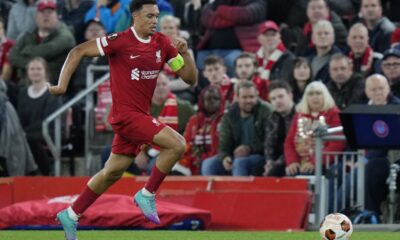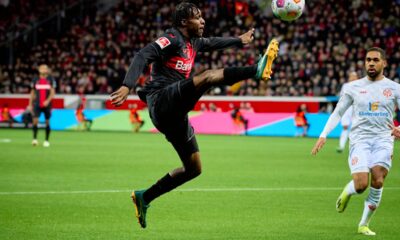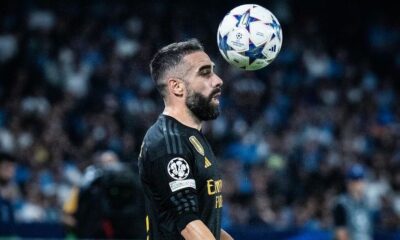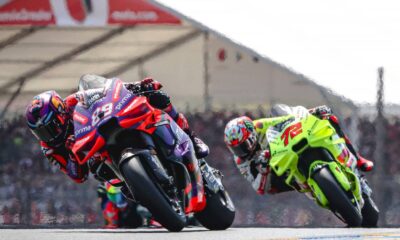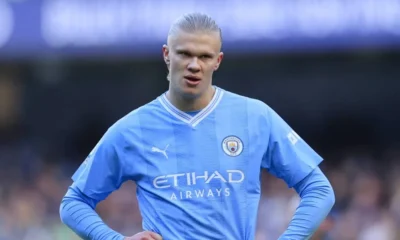Football
Spanish retreat from Real Madrid. Why is the royal club playing almost without domestic players?
Something unprecedented happened over the weekend. In its 121-year history, Real Madrid entered the match without a single Spanish player. Could this spell trouble for the club?
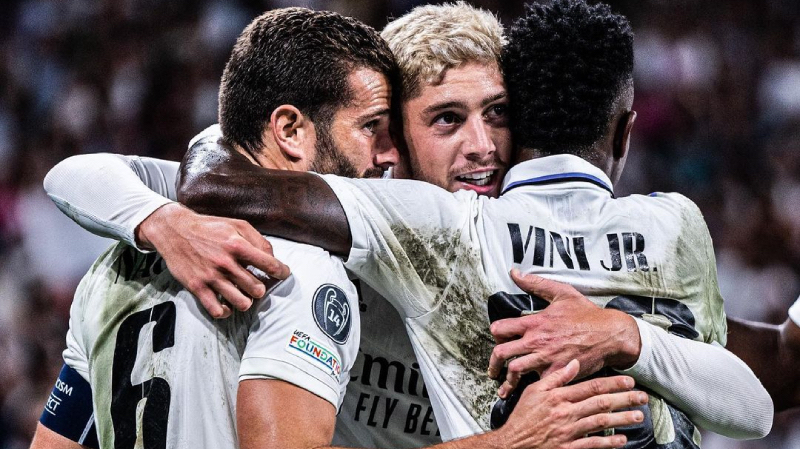
Something unprecedented happened over the weekend. In its 121-year history, Real Madrid entered the match without a single Spanish player. Could this spell trouble for the club?
On Saturday against Valencia, Real Madrid played without a single Spaniard in the starting eleven for the first time in their history. This was because Dani Carvajal, the only Spaniard with a certain place in the starting line-up, was injured.
Brazilian stopper Eder Militao was preferred to his more usual substitutes, Lucas Vázquez and Nacho Fernandez, also Spaniards.
Meanwhile, since the summer of 2021, this record was coming to an end. That was when captain Sergio Ramos left, and if he was healthy, his place in the starting line-up was assured. Marcelo thus became the first non-Spanish captain of the club since 1904.
Long gone is the era around Iker Casillas, Sergio Ramos, Raúl or Guti, when Real Madrid had a foundation laid by Spaniards. At the moment, only Carvajal has a fixed position, with Lucas as his replacement, so the right-back position was the only “Spanish” one.
The squad also includes Marco Asensio, Nacho, Dani Ceballos and Jesus Vallejo, who have more of a rotational role. Only one Spaniard has played in 13 of the 24 games this season. Eleven times it was Carvajal, twice it was Lucas. In seven games, only two Spaniards have been in the starting lineup.
The average number of Spaniards in the starting XI
Why is Real playing without Spaniards?
Since 2000, Real Madrid have bought 69 foreign players and 26 Spanish ones. Since 2018, when Álvaro Odriozola arrived from Real Sociedad, Real have not bought any Spanish player.
But what is the reason for Real having virtually no Spanish players anymore? Overwhelmingly, it’s due to the slight decline of Spanish football. Whereas at the beginning of the millennium and in 2008-12 La Roja was extremely strong and had superstars in Casillas, Raúl, Ramos, Iniesta, Xavi and Puyol, it is not so strong at the moment.
It was also evident at the World Cup in Qatar. If Spain wants to somehow succeed, they can only do it by team concept, they don’t have any big stars at the same time. And if Real want to be successful, they need the best players for every position, not looking at the nationality of the players. So there is no point in favouring domestic footballers if they are not better than foreigners.
In the last few years, not even a lot of offspring have made it to the A-team, Real is relying more on foreign young players like Vinícius, Rodrygo, Valverde, Camavinga or Tchouaméni.
Could this spell trouble for the club? Not yet, the Spanish language is still predominant in the cabinet. For Valverde it’s his native language, for the Brazilians (Vinícius, Rodrygo, Militao) it’s not that different from Portuguese and all three are fluent.
Matadors like Benzema, Kroos, Courtois or Modric can also speak Spanish without any problem and newcomers like Alaba, Camavinga or Rüdiger are learning Spanish and have no problem fitting into the squad.
Of course, it would be nice for every club to have a base made up of homegrown players, but at the moment Spanish football doesn’t offer that luxury. One can argue Barcelona, but the Catalans have been forced to do so by the financial crisis and they are not competitive in Europe.
Real Madrid showed last season that the chemistry in the cabin is absolutely fine and it practically doesn’t matter how many Spaniards are in it. Moreover, no one is saying it will stay like this forever. A new generation of Spanish footballers may come along in a few years and the conversation will be completely different.
Source: MARCA

-
Motorsport7 days ago
Jorge Martín is rewriting history! the 26-year-old Spaniard became the new MotoGP World Champion, Bagnaia succumbed despite his best efforts
-
Football14 hours ago
Manchester City blast. Tottenham blew it 4-0, defence on fire
-
Football19 hours ago
Chelsea consolidated third place. Enzo Fernández scored a goal and an assist to help Chelsea win at Leicester
